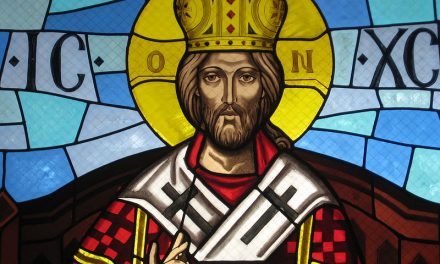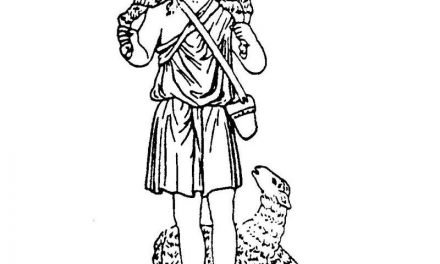First Reading – 2 Samuel 5:1-3
Responsorial Psalm – Psalm 122:1-2, 3-4, 4-5
Second Reading – Colossians 1:12-20
Gospel Reading – Luke 23:35-43
What does it take to be a good leader?
This question is one that seems particularly relevant around this time of year in the United States, as we wrap-up another election season. It’s also a question prompted by this week’s readings, as the Catholic Church celebrates the Solemnity of Our Lord Jesus Christ, King of the Universe. The readings highlight the distinctive way Jesus intends to rule as king, creating a model that we might use to answer our earthly question about leadership.
Looking first at the Gospel reading, what we see is that Jesus wields his power as a leader with great care, ordering his leadership to the benefit of others.
He is not concerned with the use of power to protect his power, even when taunted. Instead, he accepts the judgment of “the rulers” who ultimately have no power over him, even though he could have, in fact, have used his power to save himself and thus done exactly what they implied he could not.
I am reminded here of Seneca’s treatise On Mercy (De Clementia), which describes how kings are distinct from tyrants in their willingness to show mercy; that is, in their choice at times to do less than their power would allow. In his argument, which is designed to encourage Nero to show greater mercy to his foes, Seneca suggests true power is found not in its use for vengeance but in the decision not to use the full force that one has at one’s disposal.
Jesus is teaching us something similar, in that he refuses to use his kingly power to promote his own ends. Instead, he submits to an authority he does not need to submit to in order to achieve the ultimate end of our salvation. He shows us that the true question for a leader is not “Can I do this?,” but “Should I do this?”
When Jesus does exert his power in the Gospel, it is to for the benefit of the repentant criminal, promising, “Today you will be with me in Paradise” in a way that undoubtedly effects the very outcome it describes. So should it be with good human leaders: order power to those who have it the least and only make the promises that one will keep.
The parallels with Seneca’s On Mercy continue, then, for mercy is at the heart of both Jesus’s actions toward the man who has been crucified alongside him and the vision of how Jesus, as king, wishes to treat us all. “He delivered us from the power of darkness and transferred us to the kingdom of his beloved Son in whom we have redemption, the forgiveness of sins,” the second reading insists. We are invited to turn toward the mercy of this king, especially during the Advent journey on which we are about to embark.
The last point about leadership that I see in the reading is from the example of David, the subject of this week’s first reading. There is a message here about the role of consensus for leaders.
David’s rule as king is a sign of unity. “In those days, all the tribes of Israel came to David,” the first reading begins, depicting a remarkable show of unity. The reading then closes with an emphasis on the same theme, noting, “When all the elders of Israel came to David in Hebron, King David made an agreement with them there before the Lord, and they anointed him king of Israel.” It is the agreement between David and all the tribes, in the presence of the Lord, that leads to his anointing by those very people.
The reading does not emphasis the role of mercy in this agreement, but I am struck by what I know of the challenges of pursuing consensus among human beings with all our foibles and flaws. It is hard for me to imagine this consensus came about through sheer force of will.
Instead, I imagine it required some compromises, some work on David’s part, and a willingness to show the humility and the mercy of a true leader who demurs from doing all that his position and power might allow in favor of doing only what he should.
Let us go forward this week, then, thinking about all the ways we are called to lead in a manner that embraces the vision we see in Our Lord Jesus Christ, King of the Universe. And, if we find a disconnect between our own leadership (or our own leaders) and this high model—and we will—let us be grateful for the fact that our ultimate leader is Christ, King.





